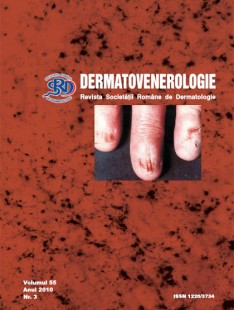General reviews
HPV vaccination to prevent the cervical cancer
Cervical cancer is the only tumoral form for which it does exist prevention possibility by vaccination, together with the possibility of detecting it early,by screning.Association of vaccination of young women against HPV types causing cancer (16 and 18) with Babes Papanicolaou screening of cervical secretion every 3 years can reduce incidence of cervical cancer 94%,compared to
lack of any measures.
There are two vaccines against HPV:Cervarix (bivalent) and Silgard (quadrivalent) which prevent infection with the most common types HPV(16 and 18) causing cervical cancer designed for women between 10-55 years old.Vaccines are safe,imunogenic and efficient for HPV infection and cervical precancerous affections prevention.It would be ideal that the young women should be vaccinated before first sexual contact since they get the HPV infection over months after the first sexual contact and the high incidence appears after a few years afterwards.Although antiHPV vaccines are not efficient for preventing cervical cancer at women infected with HPVtypes 16 and 18,HPV testing is not recommended before vaccination primarily because few women are infected with both HPV16 and HPV18 before vaccination.
Women who have genital warts or an abnormal Pap test may be vaccinated,because it is unlikely to be infected with all types of strains which vaccines assure protection.
Clinicians should inform women that vaccinations will have no therapeutic effect on existing vaccine-type HPV infection or disease.The low antibody level determined by the HPV natural infection isn’t protective for the next infections.OMS consider that the neutralizing antibodies represent the best protection indicator against HPV infection.The protection period duration wasn’t fully established.Cervarix is the vaccine which demonstrated till now high levels of antibodies both for HPV 16 and HPV18 for at least 7,3 years.It hasn’t been established the necesity of a booster dose.AntiHPV vaccination proves to be,while new studies are published every year, a safe and efficient method as well for removing the cervical cancer.
The real degree at which we’ll see population protected against this cancer depends on population coveragr by antiHPV vaccination and continuous participation at the cytology screening programmes.


